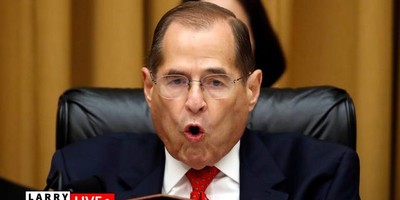"The police are afraid," an Egyptian reported after witnessing 80 prisoners, some armed with machetes and guns, break out of a jail in Cairo. It was one of many such jailbreaks in the past three months. Crime, an unwelcome weed in the garden of the Arab Spring, has proliferated in the months since the Mubarak regime was driven from power. Egypt today is plagued by sectarian violence, kidnapping, and hooliganism. The police, who kept order through brutality and intimidation during the Mubarak era, are now too cowed to act.
At a soccer match between the Egyptian and Tunisian teams, reports The New York Times, a referee's call on behalf of the Tunisians led to a riot. Spectators rushed the field, attacking the referee and the visiting team. Two players were sent to the hospital.
Critics of American policy in the Middle East have often condemned our traditional support for "stability." America's sole concern, they said, was for the reliable flow of oil. To secure the juice for our SUVs, we were willing to overlook atrocious human rights abuses, repression, and economic backwardness in the region.
This wasn't just a leftist critique. Former President George W. Bush, announcing his departure from that approach, told a London audience in 2003 that "In the past, (we) have been willing to make a bargain to tolerate oppression for the sake of stability ... Yet this bargain did not bring stability or make us safe. It merely bought time while problems festered and ideologies of violence took hold..."
In that spirit, many former Bush administration officials cheered the uprisings in the Arab world. They argued, not without some plausibility, that the freedom agenda advanced by President Bush was bearing fruit and that the U.S. must, at all costs, associate itself with the people's thirst for freedom and dignity and not with the repressive, discredited regimes.
Recommended
But to be a conservative is to resist romanticism. A key conservative insight, dating to Edmund Burke ("Good order is the foundation of all things"), cautions that chaos is the enemy of liberty, justice, and prosperity. The rule of law, property rights, respect for the rights of minorities, and an independent judiciary do not spring fully formed from popular uprisings.
Additionally, not all repressive regimes are created equal. In the Muslim world, the worst regimes -- Syria, Iran, Libya -- have been those most hostile to the U.S. It is precisely because the leaders of the Egypt and Tunisia (no Democrats admittedly) were unwilling to engage in the kind of savage crackdowns on their people undertaken by the barbarians (see above) that they were deposed.
Post-Mubarak Egypt is a reminder of the dangers of chaos. During the Tahrir Square demonstrations in February, religious differences were papered over. "We are all one: Muslims and Christians are one," demonstrators chanted. That spirit hasn't lasted even a season. In the course of the past few weeks, repeated clashes have erupted between Copts and Muslims in Egypt. Two enormous Coptic churches have been torched, and dozens of people have been killed and wounded in street battles. A Muslim crowd estimated at 15,000, armed with Molotov cocktails, clubs, and guns, attacked a much smaller group of Copts who were demonstrating outside a Cairo TV station. The police were absent as usual. The violence was belatedly halted by the army.
Intra-Muslim violence has erupted as well. Salafists have attacked Sufi mosques and shrines, as well as Coptic churches, and the small Shiite community has suffered violence and intimidation. The Muslim Brotherhood, which had spoken soothingly of its willingness to let others lead during the Tahrir Square days, has now alarmed secularists and Copts by suggesting that Islamic law in the land of the pharaohs is the goal after all.
Of the 24,000 prisoners who escaped during the uprising against Mubarak, 8,400 are still at large, along with 6,600 weapons stolen from government armories.
Relations between Egypt and Iran have improved.
The Egyptian economy was fragile before the revolution. It has gotten much worse. The Asia Times reports that tourism has collapsed. Remittances from guest workers abroad are estimated to be half what they were in 2009. As the Weekly Standard reported, "Egypt is running out of food, and, more gradually, running out of the money with which to buy it ... Egypt imports half its wheat, and the collapse of its external credit means starvation."
The most important nation in the Arab world is teetering. This is not an endorsement of the Mubarak regime, but simply a reminder of the centrality of that most uncharismatic yet indispensable of virtues -- prudence.

























Join the conversation as a VIP Member